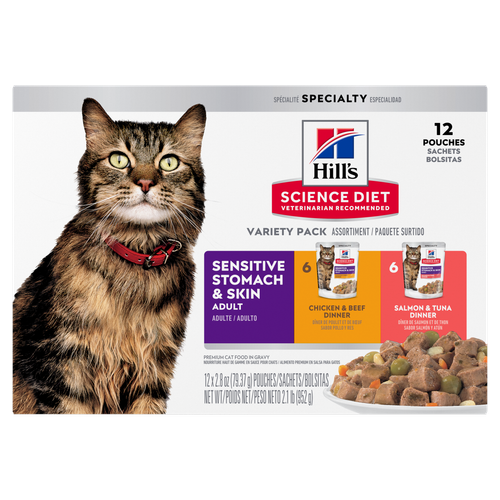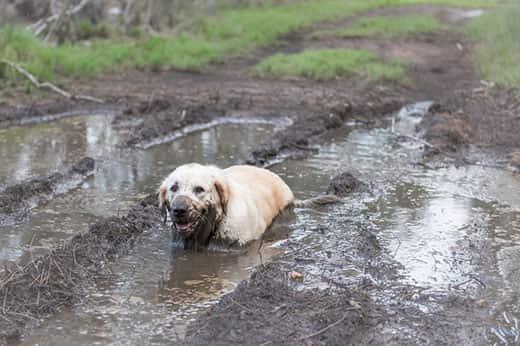
-
Find the right food for your petTake this quiz to see which food may be the best for your furry friend.Find the right food for your petTake this quiz to see which food may be the best for your furry friend.Health CategoryFeatured products
 Adult 6+ Large Breed Chicken Meal, Barley & Rice Recipe Dog Food
Adult 6+ Large Breed Chicken Meal, Barley & Rice Recipe Dog FoodSupports energy level, joint health, and beautiful coat in large breed mature dogs
Shop Now Puppy Sensitive Stomach & Skin Salmon & Vegetable Stew
Puppy Sensitive Stomach & Skin Salmon & Vegetable StewGentle on stomachs while nourishing skin & supporting development in growing puppies
Shop Now Adult Perfect Weight & Joint Support Chicken & Brown Rice Recipe Dog Food
Adult Perfect Weight & Joint Support Chicken & Brown Rice Recipe Dog FoodThis weight management and mobility support dog food was created with Hill’s unique understanding of the biology of overweight dogs.
Shop NowFeatured products Adult Sensitive Stomach & Skin Pouch Variety Pack Cat Food, Chicken & Beef, Salmon & Tuna
Adult Sensitive Stomach & Skin Pouch Variety Pack Cat Food, Chicken & Beef, Salmon & TunaCarefully made, gourmet daily nutrition. Tasty chunks with Salmon & Tuna in a decadent gravy. Supports digestive health, nourishes skin and promotes a lustrous fur.
Shop Now Sensitive Stomach & Skin Chicken & Beef Dinner
Sensitive Stomach & Skin Chicken & Beef DinnerGourmet daily nutrition, carefully made. Tasty chunks with chicken & beef in a decadent gravy. Supports digestive health, nourishes skin and promotes a lustrous fur.
Shop Now Adult Perfect Weight Salmon & Vegetable
Adult Perfect Weight Salmon & VegetableOver 70% of cats lost weight within 10 weeks when fed this nutrition
Shop Now -
DogCat
- Cat Tips & Articles
-
Health Category
- Weight
- Skin & Food Sensitivities
- Urinary
- Digestive
- Kidney
- Dental
- Serious Illness
-
Life Stage
- Kitten Nutrition
- Adult Nutrition
Featured articles Pet Food Storage Tips
Pet Food Storage TipsWhere you store your cat and dog food can make a big difference in the quality and freshness once it is opened. Here are some common questions and recommendations for optimal storage for all of Hill’s dry and canned cat and dog food.
Read More Water
WaterWater is the most important nutrient of all and essential for life. Animals can lose almost all their fat and half their protein and still survive, but if they lose 15% of their water, it will mean death.
Read More The Right Diet For Your Pet
The Right Diet For Your PetLearn what to look for in healthy pet food & nutrition, including ingredients, quality of the manufacturer, your pet's age, and any special needs they have.
Read More -


Knowing how often to bathe your dog can be tricky. With so many different types of dogs, lifestyles and health needs, there's no one-size-fits-all answer. Keep reading for guidelines to help determine the best dog bath frequency for your pet.
How Often Should I Bathe My Dog? Factors to Consider
 Generally speaking, a healthy dog with a short, smooth coat and no skin problems doesn't need to be bathed often. In most cases, dog baths are more for the benefit of their pet parents than for the dogs themselves. Even so, it's a good idea to bathe your pooch at least once every two to three months. Bathing your dog gives you an excellent opportunity to check them over for signs of skin problems or lumps that could indicate a more serious health issue.
Generally speaking, a healthy dog with a short, smooth coat and no skin problems doesn't need to be bathed often. In most cases, dog baths are more for the benefit of their pet parents than for the dogs themselves. Even so, it's a good idea to bathe your pooch at least once every two to three months. Bathing your dog gives you an excellent opportunity to check them over for signs of skin problems or lumps that could indicate a more serious health issue.
In some cases, though, your dog could benefit from having baths on a more regular basis. Here are several factors to consider when deciding if you should increase your dog bath frequency.
Your Dog's Activity Level
If your dog is highly active and spends a lot of time outside, they'll probably need a bath more often — especially if they regularly swim or play in the dirt. Even if they're not prone to getting into messes, athletic dogs could need more frequent baths to control their odor.
Their Type of Coat or Skin
Long-haired and curly-haired dog breeds generally require more regular bathing and grooming to keep their coats from matting, says the American Kennel Club. The AKC also recommends bathing these types of dogs at least once every four to six weeks, with regular brushing between baths to maintain the coat. Short-haired breeds such as Labrador retrievers can get away with infrequent bathing as long as they're healthy
What if your dog has no hair? Hairless breeds like the Chinese crested dog, who lack the skin protection a coat provides, need to be bathed weekly. Dogs who tend to have oily skin, like cocker spaniels and basset hounds, also benefit from more frequent baths to prevent oil buildup on their skin, points out Care.com.


Tasty Tips
Allergies or Skin Problems
Some dogs suffer from allergies or skin conditions that may require regular bathing with medicated shampoo. In these cases, the right dog bath frequency will depend on the instructions provided by your veterinarian or groomer. Dogs with itchy skin may also find relief from regular baths with a colloidal oatmeal shampoo. Dogs who don't respond well to oral or topical parasite treatments might need regular baths to help keep fleas and ticks under control.
Your Health and Comfort
 Sometimes pet parents can benefit from more frequent dog bathing. For example, if you're allergic to pet dander or if your pup tends to bring outdoor allergens into the house, regular baths to clean your pet's coat might help you breathe easier. And if your pooch is allowed on the furniture or into your bed, bathing at the first sign of stink will make them easier to live with.
Sometimes pet parents can benefit from more frequent dog bathing. For example, if you're allergic to pet dander or if your pup tends to bring outdoor allergens into the house, regular baths to clean your pet's coat might help you breathe easier. And if your pooch is allowed on the furniture or into your bed, bathing at the first sign of stink will make them easier to live with.
How Much Is Too Much?
If you're curious about how frequently you should be bathing your dog, know that excessive bathing can actually harm your pet. Bathing your dog too often can strip their natural oils, which they need for a healthy coat and skin, says Reader's Digest. This could result in a dry, dull coat and itchy skin. If you must bathe your dog more frequently than once a month or so, be sure to use a moisturizing dog shampoo or follow up with a moisturizing dog conditioner that can help replenish your pet's natural moisture.
If you're still not sure how often you should bathe your pup, ask your veterinarian or your groomer. By taking your dog's breed, health and lifestyle into account, they should be able to provide personalized guidelines to help you keep your dog clean and healthy.


Jean Marie Bauhaus is a pet parent, pet blogger, and novelist from Tulsa, Oklahoma, where she usually writes under the supervision of a lapful of fur babies.
Related products

This weight management and mobility support dog food was created with Hill’s unique understanding of the biology of overweight dogs.

Supports energy level, joint health, and beautiful coat in large breed mature dogs

Advanced nutrition shown to support joint health and improve mobility

Gentle on stomachs while nourishing skin & supporting development in growing puppies
Related articles

Learn what you can feed your pregnant or nursing dog to keep her and her new pups healthy.

Though it may seem like your four-legged friend loves nothing more than to nap on the couch, dogs need regular exercise to stay healthy just like people do.

Selecting the right food for your puppy is a key to quality nutrition and a long, healthy life., Learn more about how to select the right puppy food.

A dog with a sensitive stomach has special needs. Learn more about sensitive stomach symptoms in your dog, what you can do to help sooth your pet’s insides and get recommendations on sensitive stomach dog food.

Put your dog on a diet without them knowing
Our low calorie formula helps you control your dog's weight. It's packed with high-quality protein for building lean muscles, and made with purposeful ingredients for a flavorful, nutritious meal. Clinically proven antioxidants, Vitamin C+E, help promote a healthy immune system.
Put your dog on a diet without them knowing
Our low calorie formula helps you control your dog's weight. It's packed with high-quality protein for building lean muscles, and made with purposeful ingredients for a flavorful, nutritious meal. Clinically proven antioxidants, Vitamin C+E, help promote a healthy immune system.

